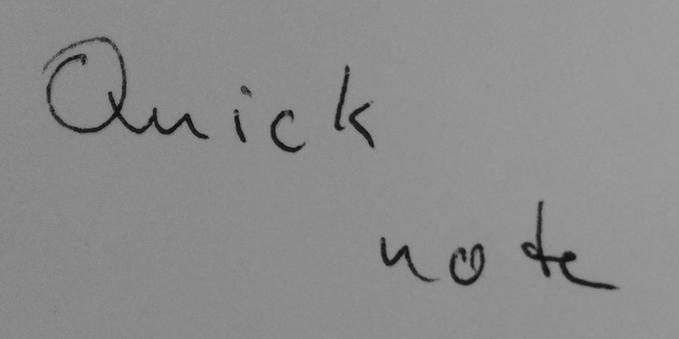2026-02-03 21:32:58
Okay, removed the second MiSTer and made room for the OG Mega Drive/Genesis. Got it hooked up, found the right power adapter and SCART cable, and even cleaned it up a bit. Think I'm done futzing around with the shelf for the time being.
#retrogaming #nes
2025-12-05 05:46:24
Perdeu um pouco o sentido isso de descer pra alimentar os gatos da rua, sendo que agora todos os gatos do grupo original jš desapareceram. Só sobraram alguns que aparecem aqui esporadicamente (inclusive o Niniro e a preto e branca - que vemos aqui na foto). Mas eu sei que a Escaminha tem alguns filhotinhos (que eu vi pouquíssimas vezes) e que, embora não sejam mais bebês, ainda devem depender bastante da mãe. Desci mais na esperança de encontrš-los, mas nenhum sinal deles.
2025-12-05 15:15:13
Oxeye daisies, Leucanthemum vulgare, along the trail to Granite Lake this summer
#naturalist #photography
2026-03-04 13:43:33
Jolla Phone Launches at MWC 2026 - Goosed.ie
#Android #SailfishOS #Jolla
2026-02-05 14:48:45
Actitud rockera total. El alma que une la música de Guns en el bajo, Duff McKagan, hoy Cumple 62 años. Un verdadero capo a quién yo admiro mucho.
#DuffMcKagan #CumpleañosRockero #GunsNRoses
2026-03-04 23:15:43
Okay. Here it is. A quick note on that new "AI declaration".
Which is mostly just a bit clueless but which also assembled some of the most vile people on the planet for a bunch of scientists and activists to put there name next to.
If your tent is big enough for fascists, it's no longer a tent but a concentration camp in the making.
2026-02-02 07:01:36
2026-01-05 00:59:39
Michael Stipe, ex líder y vocalista de una de mis bandas de rock favoritas de la vida: R.E.M., hoy estš cumpliendo 66 años. ¡Gracias por tanto, querido Michael!
#MichaelStipe #CumpleañosRockero #REM
2026-03-04 22:33:38
Quase todos os dias quando eu estou chegando no campus eu vejo este gatinho sempre neste mesmo exato lugar rs.
#CatsOfMastodon











